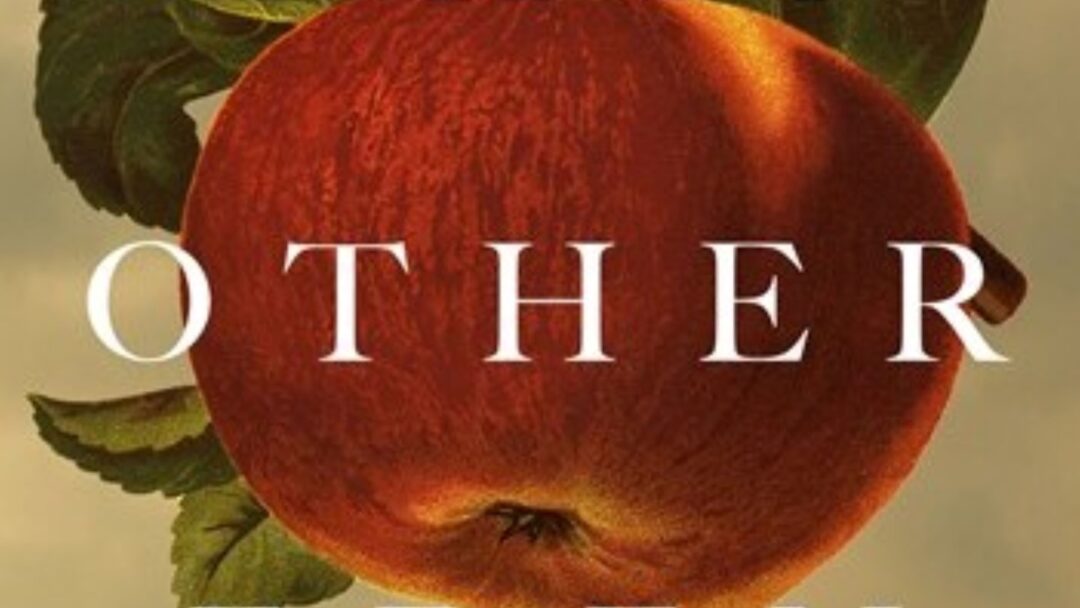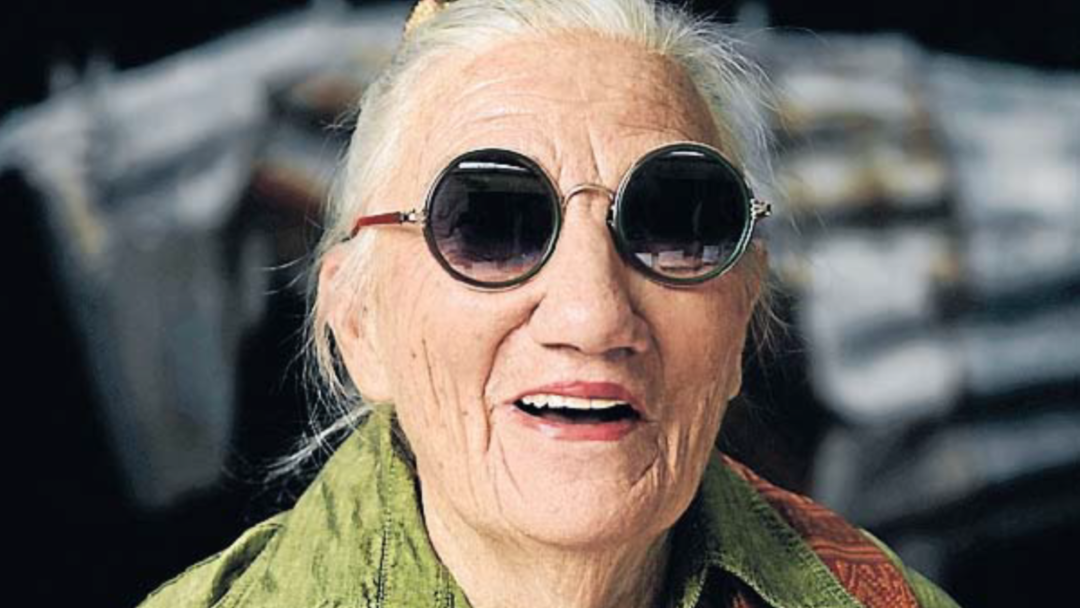Audio
Hilary Mantel, Bret Easton Ellis and more
Hear This by
Vision Australia3 seasons
19 July 2024
27 mins
Two well-known authors open the latest look at new publications in the Vision Australia Library.

Hear This is a weekly presentation from the Vision Australia Library service.
Host Frances Keyland brings you up to date with audio and Braille publications on offer - with excerpt readings, reviews and Reader Recommends.
This edition opens with a memoir by late Wolf Hall author Hilary Mantel, and a new work by the controversial Bret Easton Ellis.
00:09 UU (Program theme)
Take a look. You take a look inside the book. Take a look. You...
00:24 S1
Hello and welcome to Hear This. I'm Frances Keyland, and this is the Vision Australia Library show where we talk about books in the Vision Australia library collection. And today we've got an unusual array of books. I think they're unusual, of a literary nature - and I'll let our listeners decide if they are worthy or not. So I hope you enjoy the show.
Let's start off today's show with Hilary Mantel, who died unexpectedly three days after having a stroke in in September 2022. This book was released in 2023 in around October 2023, and it's called A Memoir of My Former Self. It's a collection of Hilary Mantel's writings and columns that she had done over the years, and I'm reading here now from the conversation from October the 20th, 2023. And it's an article by Misha Ketchell. And he says, A Memoir of My Former Self celebrates the breadth of Mantel's reading interests and the precision of her voice. The book is a selection of her writing for journals, newspapers and public lectures published together for the first time. One section is dedicated to film reviews and another to book reviews, each of which were a voluminous part of Mantel's output.
Actor Ben Miles, who played Cromwell in the Royal Shakespeare Company adaptation of Wolf Hall and Bring Up the Bodies, became very good friends with Mantel, and speaking to The Guardian, he suggested that Mantel's novels had the power to reveal worlds that were historically and culturally distant, as if they were within effortless reach, and her words felt at once intimate, sensory, funny and horrific. And he says that this sense of closeness is what many readers will hope to experience by reading A Memoir of My Former Self, and they will not be disappointed. The library synopsis says in addition to her celebrated career as a novelist, Hilary Mantel contributed for years to newspapers and journals, unspooling stories from her own life and illuminating the world as she found it, from her unusual childhood to her all consuming interest in Thomas Cromwell that grew into the Wolf Hall trilogy, A Memoir of My Former Self reveals the shape of Hilary Mantel's life in her own luminous words through a (quote), "messages from people I used to be" (unquote).
And it's filled with her singular wit and wisdom. It is essential reading for one of our greatest writers. Let's hear a sample of a memoir of my former self. It has a cast of narrators, including the Irish author Anne Enright. Aurora Dawson Hunt, Ben Miles, Bill Hamilton, Jane Wymark. I think so many people have narrated this book, and I'm just going to play... a sample from the introduction.
03:25 S2
When Hilary Mantel died unexpectedly in Budleigh Salterton, Devon, in September 2022. She was a week away from moving to Kinsale, Ireland. A reconnection with her Irish Catholic roots. She and her husband, Gerald McEwen, had bought a house with views over the surrounding countryside. At the heart of this collection is a piece about the writer John McGahern, the great chronicler of Irish rural life. In the shadow of the Roman Catholic Church there moved to Ireland, was also in part an attempt to re-establish European citizenship in the wake of Brexit. Here, too, can be found an essay about nationalism and identity, a theme that fed into Hilarys fiction, in particular her pinnacle achievement, the Wolf Hall Trilogy.
Also in these pages is an essay about Jane Austen, a lifelong passion of hers. She had recently embarked on a novel provocation that centered on the middle sister in Pride and Prejudice, Mary Bennet. At the time of her death, Hilary was a writer at the peak of her powers, one for whom fresh, creative vistas were just opening up. Reading the entirety of Hillary's writing for newspapers and periodicals in order to make this selection has been a revelation. Despite being her book editor for the last 20 years, much of what I read was new to me. Her wicked sense of humor, which was a mark of her in person, comes shining through many of these pieces. In fiction, writers tuck themselves away to various degrees, sometimes telling stories to escape themselves even if they are hiding in plain sight.
The story of Hilary Mantel is scattered throughout her novels, but in her journalism and essays, a full and exhilarating self portrait emerges.
05:21 S1
And that was A Memoir of My Former Self by Hilary Mantel. Hilary is [spells authgor's name]. And that book goes for 15.5 hours. And of course, Wolf Hall, Bring Up the Bodies... and the third in that trilogy, The Mirror and the Light, part three of the Wolf Trilogy trilogy. They're all available in the library as well as other books, short stories, as in Learning to Talk, which are biographical, loosely autobiographical stories, beginning in the 1950s, where she was born in an insular northern village scoured by bitter winds and rough gossip tongues.
And there's also other fictional books, like A Change of Climate, set in windswept countryside of Norfolk and the violent townships of South Africa. An Experiment in Love. The year that the miniskirt gave way to the maxi skirt and the socialists to the Tories, Carmel, Karina and Julianne leave their Lancashire convent school for university in London. So it looks at how their lives develop. Either check the catalogue out or ring the library and find out more about what's in the library by Hilary Mantel.
I started to listen to one of the library books recently. It's called Lunar Park. Lunar with, as in the moon, Lunar. And it's by infamous, somewhat infamous author Bret Easton Ellis, who people may remember, who wrote American Psycho. I did not read American Psycho... there was a small excerpt of it published in the newspaper when it first came out, and I remember thinking, Oh no, I could never read that. It was horrifically violent to my tastes. So it really does deal with some horrific crimes all committed by the protagonist, who is Patrick Bateman.
So what made me pick up Lunar Park? I started to listen to the beginning of it, and I found the narrative, the narrator, quite compelling. It's a book where the main character is the author, Bret Easton Ellis, and what has happened to him over the ensuing years is that there is a copycat killer, someone who is recreating the crimes that Patrick Bateman, the character of American Psycho, committed. According to Wikipedia, Luna Park is a mock memoir, and it was released in 2005. Ellis said the book was a homage to Stephen King and the comic books he loved as a child. The library synopsis says he became a best selling novelist while still in college, immediately famous and wealthy. He watched his insufferable father reduced to a bag of ashes in a safety deposit box. He was lost in a haze of booze, drugs and vilification. Then he was given a second chance.
This is the life of Bret Easton Ellis, the author and subject of this remarkable novel, confounding one expectation after another. Luna Park is equally hilarious, horrifying and heartbreaking. It's the most original novel of an extraordinary career, and best of all, it all happened. Every word is true. But is it so? An unreliable narrator. But let's hear a sample of Lunar Park by Bret Easton Ellis. It's narrated by James Van Der Beek.
08:43 S3
Every hotel on the Glamorama world tour was required to provide ten votive candles, a box of chewable vitamin C tablets, an assortment of Ricola throat lozenges, fresh ginger root, three large bags of Cool Ranch Doritos, a chilled bottle of Cristal, and an unlisted, outgoing only phone line. And in all readings, the lights above the podium had to be orange tinted because this would bring out the darkness of my salon induced tan. If these contractual demands weren't met, the fine would be split between Khnopff and myself. No one said being a Bret Easton Ellis fan was easy. An actual drug cop was hired for the second US tour. Somehow during all of this, the paperback had been published. I had been on the road that long.
Terence had slipped out of the picture months ago, and a fresh faced young woman, motivational helper or celebrity babysitter or sober companion or whatever was now on hand to basically make sure I didn't snort heroin before readings. But of course, she was hired to protect my publisher, not me. They didn't really care about the underlying reasons of my addiction, but then neither did I and were only interested in the amount of book sales the tour was generating. I thought I was fragile, yet functioning, but according to memos the drug cop emailed to Canopy's publicity department from the road, I was most decidedly not functioning.
Email memo number six, 15 miles southwest of Detroit. Writer was found hiding in back of stalled van on the median of a divided highway, picking at non-existent scabs. Email memo number nine. Somehow writer has been tear gassed at anti-globalization demonstration in Chicago. Email memo number 13. Berkeley angry drug dealer was found choking writer due to lack of payment in alley behind Barnes and Noble. Email memo number 18. Cleveland writer slept until 3 p.m. missing all morning and lunch interviews. Was then found pigging out on junk food until compelled to throw up. Also witnessed standing in front of hotel mirror sobbing I'm getting so old!
10:44 S1
So that was a sample of Lunar Park by Bret Easton Ellis. Bret is Bret, not double T, so it's just [spells name]. And this book goes for... 11 hours and 50 minutes. If you did want to read American or listen to American Psycho, we do have it in the library, but it is... full of really disturbing material, abuse and murder and torture. So just a bit of a warning there. We also have The Informers, Less than Zero, The rules of attraction, Glamorama and The Shards. From what I've listened to, there's only the occasional F word. It's not a... incredibly recurring word, and as I said, I'm finding the narration quite compelling and the character compelling. He's not likable. And so there is drug use in the book and questionable attitudes and a lot of questionable past behavior that he examines in the book. But is it true or is it not? So yes, that is Lunar Park.
The next book is Outline, and this is by an author, Rachel Cusk. Rachel Cusk is a British novelist born in 1967. The synopsis for outline is a woman writer goes to Athens in the height of summer to teach a writing course. Though her own circumstances remain indistinct. She becomes the audience to a chain of narratives as the people she meets tell her one after another of the stories of their lives, beginning with the neighbouring passenger on the flight out and his tales of fast boats and failed marriages. The storytellers talk of their loves and ambitions and pains, their anxieties, their perceptions and daily lives. Let's hear a sample of Outline by Rachel Cusk. It's narrated by Kate Lock.
12:41 S4
Before the flight, I was invited for lunch at a London club with a billionaire I'd been promised had liberal credentials. He talked in his open necked shirt about the new software he was developing that could help organisations identify the employees most likely to rob and betray them in the future. We were meant to be discussing a literary magazine. He was thinking of starting up. Unfortunately, I had to leave before we arrived at that subject. He insisted on paying for a taxi to the airport, which was useful since I was late and had a heavy suitcase. The billionaire had been keen to give me the outline of his life story, which had begun unprepossessing early and ended obviously, with him being the relaxed, well-heeled man who sat across the table from me today. I wondered whether, in fact, what he wanted now was to be a writer, with the literary magazine as his entree. A lot of people want to be writers, and there was no reason to think you couldn't buy your way into it.
This man had bought himself in and out of a great many things. He mentioned a scheme he was working on to eradicate lawyers from people's personal lives. He was also developing a blueprint for a floating wind farm, big enough to accommodate the entire community of people needed to surface and run it. The gigantic platform could be located far out to sea, thus removing the unsightly turbines from the stretch of coast where he was hoping to pilot the proposal and where, incidentally, he owned a house. On Sundays, he played drums in a rock band just for fun. He was expecting his 11th child, which wasn't as bad as it sounded when you considered that he and his wife had once adopted quadruplets from Guatemala.
14:48 S1
That was Outline by Rachel Cusk. Rachel is [spells name]. And that book goes for seven hours and 20 minutes. Outline was one of the New York Times top five novels of 2015. In The New York Times, Heidi Julavits wrote, While the narrator is rarely alone, reading Outline mimics the sensation of being underwater, of being separated from other people by a substance, a substance denser than air. But there is nothing blurry or muted about Cusk's literary vision or her prose. Spend much time with this novel, and you'll become convinced she is one of the smartest writers alive.
Outline was shortlisted for the Folio Prize, the Goldsmiths Prize and the Baileys Women's Prize for fiction. The Guardian review by Helen Dunmore called it brilliant and insightful prose, adding Cusk is now working on a level that makes it very surprising that she has not yet won a major literary prize. And it's part one of a trilogy. So Outline is followed by Transit, and that's followed by Kudos. And that is the three books that we have in the library collection by Rachel Cusk.
Now harkening back to the concept of the unreliable narrator, the next book is politically topical. It's by J.D. Vance, who is Donald Trump's pick for his vice president... if he wins the next election. There's a lot been written about it since J.D. Vance was announced. The book is Hillbilly Elegy - from a former marine and a Yale Law School graduate, a powerful account of growing up in a poor rustbelt town that offers a broader, probing look at the struggles of America's white working class. The decline of this group a demographic that has been slowly disintegrating over 40 years, has been reported on with growing frequency and alarm, but has never been before written about as searingly from the inside.
J.D. Vance tells the true story of what a social, regional and class decline feels like when you were born, with it hung around your neck. The Vance family story begins, hopefully in postwar America. J.D.'s grandparents were dirt poor and in love, and moved north from Kentucky's Appalachia region to Ohio in the hopes of escaping the dreadful poverty around them. They raised a middle class family and eventually their grandchild. The author would graduate from Yale Law School, a conventional marker of their success in achieving generational upward mobility. But as the family saga of Hillbilly Elegy plays out, we learn that this is only the short, superficial version. Vance's grandparents, aunt, uncle, sister, and most of all, his mother struggled profoundly with the demands of their new middle class life and were never able to fully escape the legacy of abuse, alcoholism, poverty, and trauma so characteristic of their part of America.
Vance piercingly shows how he himself still carries around the demons of their chaotic family history. So let's hear a sample of Hillbilly Elegy by J.D. Vance. It's narrated by the author, J.D. Vance.
18:06 S5
Middletown is one of the older incorporated towns in Ohio built during the 1800s thanks to its proximity to the Miami River, which empties directly into the Ohio. As kids, we joke that our hometown was so generic that they didn't even bother to give it a real name. It's in the middle of Cincinnati and Dayton, and it's a town. So here we are. It's not alone. A few miles from Middletown is Centerville. Middletown is generic in other ways. It exemplified the economic expansion of the manufacturing based Rust Belt town. Socioeconomically, it is largely working class. Racially, there are lots of white and black people, the latter the product of an analogous Great Migration, but few others. And culturally it is very conservative. Although cultural conservatism and political conservatism are not always aligned in Middletown.
The people I grew up around are not all that dissimilar from the people of Jackson. This is especially obvious at Aamco, which employed a plurality of the town's population. Indeed, the work environment once mirrored the Kentucky towns that many of the employees came from. One author reported that a sign over the doorway between departments read, Leave Morgan County and enter Wolfe County, Kentucky down to its county. Rivalries moved with the Appalachian migrants to town. As a kid, I sorted Middletown into three basic geographic regions. First, the area surrounding the high school, which opened in 1969, Uncle Jimmy's senior year. Even in 2003, Manuel called it the new high school.
The rich kids lived their large homes, mixed comfortably with well-kept parks and office complexes. If your dad was a doctor, he almost certainly owned. I dreamed that I'd own a house in Manchester Manor, a relatively new development not a mile from the high school where a nice home went for less than a fifth of the price of a decent house in San Francisco. Next, the poor kids, the really poor kids live near Armco, where even the nice homes had been converted into multifamily apartment units. I didn't know until recently that this neighborhood was actually two neighborhoods, one inhabited by Middletown's working class black population, the other by its poorest white population.
20:07 S1
And that was Hillbilly Elegy by J.D. Vance. So simply the initials J and then D and the surname [spells it]. It's a short one, goes for six hours and 45 minutes. Such was the success of the novel when it came out that it was made into a drama comedy in 2020, with Glenn Close and Amy Adams amongst the cast. And what is controversial about the novel? I'm just looking at some, some, some comments made on his Wikipedia page, all the Hillbilly Elegy Wikipedia page, It says his resentment of those who seem to profit from poor behaviour while he struggled, especially combined with his values of personal responsibility and tough love, is presented as a microcosm of the reason for Appalachia's overall political swing from strong Democratic to strong Republican affiliations.
But he's been criticised for blaming people's personal failures rather than economic conditions for society's problems. The book has received praise and criticism, and other authors from Appalachia have... really criticised his portrayal of what is a distinct American culture. And curiously, although he does not mention Trump in the book, Vance openly criticised the now former president while discussing his memoir in interviews following its release, but he walked these comments back when he joined the 2022 US Senate race in Ohio and of course, now openly endorses Trump, of course. So a very current book there, Hillbilly Elegy by J.D. Vance.
The next book is by Australian author Katherine Johnson, and it is Paris Savages. On beautiful Fraser Island in 1882, the population of the Badjala people is in sharp decline following a run of brutal massacres. When German man Louis Mueller offers to sail 18 year old Bonney to Europe, along with 22 year old Germano and his 15 year old niece, the proud and headstrong Bonney, agrees. Accompanied by Mueller's bright and grieving daughter Hilda, the group begins the journey to perform in Hamburg. Berlin, Paris, and eventually London in the hope of seeking help from the Queen of England. While crowds in Europe are enthusiastic to see the unique dancers, singing, fights and pole climbing from the oldest culture in the world, the attention is relentless and the fascination of scientists intrusive.
Bonnie is not a passive victim and starts to earn money from mocking the crowd. But when disaster strikes, he must find a way to return home. Let's hear a sample of Paris Savages. This is the introduction to the book by Katherine Johnson. The book is narrated by Taylor Owens.
23:00 S6
This is a work of imagination inspired by the little known true story of three Aboriginal people Bonagura, Bonnie, Duran Duran Gironda and Gerono taken to Europe as living exhibits in 1882 to 83. While travellers and performers had been journeying to Europe from distant lands since the time of Columbus. It was not until the mid to late 19th century that ethnic shows, also known as human zoos, became mass entertainment. Such shows took place in zoological gardens. museums, colonial exhibitions and world fairs. Human zoos were also popular in America under the likes of showman P.T. Barnum.
According to a retrospective on the subject in Paris in 2012, worldwide, between 1800 and 1958, over a billion spectators attended such acts, marveling at more than 35,000 individuals, significantly influencing views on race. For a brief history of the events that inspired this novel, please see the afterword, which includes references to the letters, diary entries, newspaper reports, and scientific journal articles that I have quoted verbatim. Paris Savages builds on these scant records to envisage the story of Bonnie Geronio Deronda Badjala Pajala people from K'gari, Fraser Island. Rather than assuming Aboriginal viewpoints, the story is told through fictional characters related in the novel to the German engineer Louis Müller, who is known to have transported the group to Europe for Bonagura. Bonnie Gerono and Darren Dewar, whose stories can only ever be imagined.
24:45 S1
And that was a sample of Paris Savages by Katherine Johnson. And that book goes for ten hours, and Katherine is spelt [spells author's name]. There are quite a few reviews online about this book from The Sydney Morning Herald, December 2019 by Louise Swinn. She writes: Johnson writes with emotional force about three people who are being pushed physically and emotionally, and whose trust is being tested, showing the way in which someone in a position of power can gradually chip away at another's trust. And while the debate about who can tell whose stories is ongoing, Johnson's creative deep dive into history has an authenticity that will no doubt help fix the gaps that pervade our predominant narrative. A general understanding is not enough. It is important that we comprehend the specifics of the appalling treatment of native people and cultures that has taken place in our collective past. Paris savages punches well above its weight to add to this vital conversation.
Thank you for joining us on Hear This today. My name is Frances Keyland. If there are any books that take your fancy, give the library a call. But also if there's any books that you would like to recommend, I'm running low on recommendations, so please send them through. We'd love to have them on the show. The number to call is 1300 654 656. That's 1300 654 656. Or you can email library@visionaustralia.com - that's library at vision Australia dot com. And yeah, put forward any books that you think are worth reading. Let the library community know what you're enjoying. It is part of the backbone of Hear This. Otherwise I can just waffle on about books that I've half listened to. So you don't want that. Have a lovely week, everybody, and we'll be back next week with more Hear This.
Continue listening

On Hear This, latest books in the Vision Australia library. This edition, award-winning Oz fiction.
Australian fiction
Hear This by Vision Australia
4/8/2023
•28 mins
Audio

Books from the Vision Australia library - this episode featuring memoirs and family histories.
Family histories
Hear This by Vision Australia
11/8/2023
•27 mins
Audio

This edition: Michael Parkinson remembered and an assortment of latest books from the Vision Australia library.
Vale Michael Parkinson
Hear This by Vision Australia
18/8/2023
•26 mins
Audio

Hear This reviews latest books from Vision Australia library - this edition starting with two Booker Prize aspirants.
Booker Prize hopefuls
Hear This by Vision Australia
25/8/2023
•27 mins
Audio

Hear This interviews Tracey Chevalier, author of Girl with a Pearl Earring.
Girl with a Pearl Earring
Hear This by Vision Australia
8/9/2023
•28 mins
Audio

Hear This samples a variety of audio books from the Vision Australia library.
Top picks from audio books
Hear This by Vision Australia
15/9/2023
•28 mins
Audio

Events and activities at Vision Australia library - and latest picks from its books.
Community engagement
Hear This by Vision Australia
22/9/2023
•27 mins
Audio

This edition of Hear This from the Vision Australia library opens with a discussion of banned books.
Banned books
Hear This by Vision Australia
6/10/2023
•28 mins
Audio

Hear This features latest books and events at the Vision Australia library.
Latest events and books
Hear This by Vision Australia
13/10/2023
•27 mins
Audio

Latest books from the Vision Australia library - including childhood tales and a John Grisham thriller.
Childhood tales and a Grisham thriller
Hear This by Vision Australia
20/10/2023
•28 mins
Audio

Latest books from the Vision Australia library - including a novel by Australian Sam Drummond.
Oz writer Sam Drummond
Hear This by Vision Australia
3/11/2023
•27 mins
Audio

Books from the Vision Australia library - including a memoir by a friend of Anne Frank.
Anne Frank's friend
Hear This by Vision Australia
10/11/2023
•28 mins
Audio

Book reviews and excerpts from Vision Australia library - including a wartime struggle for survival.
Survival in wartime
Hear This by Vision Australia
24 November 2023
•27 mins
Audio

A special seasonal edition reviews Christmas murder stories available from Vision Australia library.
Yuletide Homicide
Hear This by Vision Australia
8 December 2023
•28 mins
Audio

Veteran talking book reader Tony Porter reviews his many voices.
The many voices of Tony Porter
Hear This by Vision Australia
5 January 2024
•27 mins
Audio

What's new in Vision Australia library of Braille and audio books - including new Australian works.
New Australian books
Hear This by Vision Australia
12 January 2024
•28 mins
Audio

Vision Australia librarian talks of coming events and latest books for people with blindness and low vision.
Coming events and new books
Hear This by Vision Australia
26 January 2024
•28 mins
Audio

Review of books from the Vision Australia library - from a broad international range.
Books from Japan, US, Australia and Sweden
Hear This by Vision Australia
2 February 2024
•27 mins
Audio

New books in the Vision Australia library - from E.L.Doctorow to Alan Bennett.
Reasons Not to Worry, Wild Things... and Alan Bennett
Hear This by Vision Australia
9 February 2024
•28 mins
Audio

Latest events and books from Vision Australia Library, featuring its Community Engagement Co-ordinator.
Vision Library latest with Leeanne
Hear This by Vision Australia
16 February 2024
•28 mins
Audio

Features Jamie Kelly of Vision Australia Library, updating us on its website catalogue. And other new books.
Vision Australia library online, and Jelena Dokic
Hear This by Vision Australia
23 February 2024
•29 mins
Audio

New books in the Vision Australia Library - in this edition, books about paintings.
Books about paintings
Hear This by Vision Australia
1 March 2024
•26 mins
Audio

From the Vision Australia Library, women's memoirs on International Women's Day.
Women's memoirs on IWD
Hear This by Vision Australia
8 March 2024
•28 mins
Audio

Coming events and books at Vision Australia Library for people with blindness or low vision.
Coming events at Vision Library - and a Kerouac classic
Hear This by Vision Australia
15 March 2024
•29 mins
Audio

Latest books from Vision Australia Library - this week, some top Oz and worldwide novels.
Top Oz and world novels
Hear This by Vision Australia
29 March 2024
Audio

Coming events at Vision Australia Library in connection with the Melbourne Writers' Festival.
Melbourne Writers' Festival
Hear This by Vision Australia
5 April 2024
•28 mins
Audio

Coming events and new books at the Vision Australia Library for blind and low vision people.
Event update and more new books
Hear This by Vision Australia
12 April 2024
•29 mins
Audio

How printed works are brought to life as audio books in the Vision Australia Library.
Audio book narrators
Hear This by Vision Australia
19 April 2024
•28 mins
Audio

ANZAC Day edition of this series from the Vision Australia library for people with blindness or low vision.
ANZAC sniper
Hear This by Vision Australia
26 April 2024
•28 mins
Audio

From the Vision Australia library: a South African childhood, AI issues and an American First Lady.
Apartheid, AI and Michelle Obama
Hear This by Vision Australia
3 May 2024
•27 mins
Audio

Forthcoming Vision Library events including those connected with the Melbourne Writers' Festival.
Melbourne Writers' Festival and Vision Library events
Hear This by Vision Australia
10 May 2024
•28 mins
Audio

Murder mystery novels available from the Vision Australia library are reviewed and sampled.
Murder mysteries
Hear This by Vision Australia
24 May 2024
•27 mins
Audio

Celebrating National Reconciliation Week with books from Vision Australia Library... plus some user favourites.
Reconciliation Week and Reader Recommends
Hear This by Vision Australia
31 May 2024
•27 mins
Audio

Reader Recommends and crime fiction from the Vision Australia library for blind and low vision people.
This Other Eden... and some other readin'!
Hear This by Vision Australia
7 June 2024
•29 mins
Audio

Vision Library's coming community events and latest books for people with blindness or low vision.
Coming events and latest books
Hear This by Vision Australia
14 June 2024
•29 mins
Audio

Books in Vision Australia library for people with impaired vision - this time on the theme of Darkness.
Darkness
Hear This by Vision Australia
21 June 2024
•29 mins
Audio

New books in Vision Library including the Wikileaks founder's autobiography.
Julian Assange - by the man himself
Hear This by Vision Australia
28 June 2024
•29 mins
Audio

Community events soon to happen at Vision Australia Library for people with blindness and low vision.
Coming events at Vision Australia Library
Hear This by Vision Australia
5 July 2024
•28 mins
Audio

Two well-known authors open the latest look at new publications in the Vision Australia Library.
Hilary Mantel, Bret Easton Ellis and more
Hear This by Vision Australia
19 July 2024
•27 mins
Audio

Vision Library series, this episode features new Australian crime novels written by women.
Australian sisters in crime
Hear This by Vision Australia
26 July 2024
•28 mins
Audio

Latest publications in the Vision Library, starting with a biography of John Farnham.
He's the Voice
Hear This by Vision Australia
2 August 2024
•27 mins
Audio

Latest reviews and readings from publications in the Vision Library for people with print disabilities.
Race, history and Black Ducks
Hear This by Vision Australia
9 August
•28 mins
Audio

Books from Vision Library reviewed include a Julie Andrews memoir, Guardian newspaper picks and more.
Julie remembers and The Guardian recommends
Hear This by Vision Australia
30 August 2024
•27 mins
Audio

An Australian author discusses her works, plus reviews of other books in the Vision Library.
Jane Rawson - author
Hear This by Vision Australia
6 September 2024
•28 mins
Audio

Update on forthcoming events and available publications at the Vision Australia Library.
What's On at Vision Australia Library
Hear This by Vision Australia
13 September 2024
•27 mins
Audio

Accessible Vision Library books reviewed, including murder mysteries and award nominees.
Mysteries and prize contenders
Hear This by Vision Australia
20 September
•27 mins
Audio

Reviews and events at Vision Australia Library to mark World Sight Day, October 10.
World Sight Day and Barbra Streisand
Hear This by Vision Australia
4 October 2024
•28 mins
Audio

What's on in the Vision Library, and the works of Ira Levin and Han Kang.
Library events, Ira Levin and Han Kang
Hear This by Vision Australia
11 October 2024
•28 mins
Audio

Vision Library publications reviewed - opening with some tributes to writers passed.
Tributes, and more
Hear This by Vision Australia
18 October 2024
•28 mins
Audio

Reviews and readings from Australian, British and US books in the Vision Australia Library.
Tomorrow, Questions, Mistresses and Murder
Hear This by Vision Australia
25 October 2024
•28 mins
Audio

Reviews and readings from books available in the Vision Australia Library.
From Australian thrillers to the US and South Africa
Hear This by Vision Australia
1 November 2024
•28 mins
Audio

A wide range of books in the Vision Australia Library are reviewed and sampled.
Leonard Cohen, ghosts and Broken Hill
Hear This by Vision Australia
8 November 2024
•28 mins
Audio

Events and publications at Vision Australia Library for people with blindness or low vision.
Vision Library: what's in and what's on
Hear This by Vision Australia
15 November 2024
•28 mins
Audio

Interview with an award-winning author about her life and work... plus more publications in the Vision Australia Library.
Jacqueline Bublitz
Hear This by Vision Australia
22 November 2024
•28 mins
Audio

Vision Australia Library for people with vision impairment updates its coming events and latest publications.
Coming soon to the Vision Library
Hear This by Vision Australia
13 December 2024
•28 mins
Audio

Christmas-themed books in the Vision Australia Library for people with vision impairment.
Christmas offerings
Hear This by Vision Australia
20 December 2024
•28 mins
Audio

New books for 2025, fiction and non-fiction - vale Leunig!
Fiction and non-fiction for the New Year
Hear This by Vision Australia
3 January 2025
•27 mins
Audio

Reviews of varied books from the Vision Library - some centring on radio stations or radio plays.
Radio drama
Hear This by Vision Australia
10 January 2025
•29 mins
Audio

What's On at Vision Australia Library - and latest publications accessible to people with blindness and low vision.
Coming events in 2025 - and latest publications
Hear This by Vision Australia
24 January 2025
•28 mins
Audio

Writings on Marianne Faithfull and award-contending works in the Vision Australia Library are reviewed.
Vale Marianne... and award-nominated books
Hear This by Vision Australia
31 January 2025
•28 mins
Audio

Special guest highlights interesting events in libraries around the country... and some new books.
What's new in libraries around Australia
Hear This by Vision Australia
7 February 2025
•27 mins
Audio

Accessible publications chosen for February 14: Library Lovers' Day, Valentines Day and World Radio Day.
Library Lovers' Day
Hear This by Vision Australia
14 February 2025
•29 mins
Audio

An update on Vision Australia Library's coming events and latest blind-accessible books.
Coming events and new books
Hear This by Vision Australia
25 February 2025
•29 mins
Audio

Reviews of accessible books including a John Steinbeck classic, and news of a forthcoming writers' festival.
Brimbank and Steinbeck
Hear This by Vision Australia
28 February 2025
•29 mins
Audio

Coming courses and other events at Vision Australia Library - and latest accessible books.
Courses, events and latest publications
Hear This by Vision Australia
14 March 2025
•28 mins
Audio

Special with interviews and readings at a writers' festival and writing competition in Melbourne.
Brimbank Writers' and Readers' Festival and Micro-fiction Competition
Hear This by Vision Australia
21 March 2025
•30 mins
Audio

An interview with an Australian woman writer and reviewer, about her favourite female authors.
Women authors with Stella Glorie
Hear This by Vision Australia
28 March 2025
•29 mins
Audio

Reviews and excerpts from accessible works in the Vision Australia Library, starting with a new Australian novel.
Reader recommends a Deal
Hear This by Vision Australia
4 April 2025
•27 mins
Audio

Vision Australia Library brings news of accessible events at the forthcoming Melbourne Writers' Festival.
Melbourne Writers' Festival 2025
Hear This by
11 April 2025
Audio

Vision Australia Library pays tribute to the late Australian author of the Miss Fisher mysteries and more.
Vale Kerry Greenwood
Hear This by Vision Australia
18 April 2025
•28 mins
Audio

ANZAC Day special featuring reviews and short readings from books about the First World War.
Reading about World War 1
Hear This by Vision Australia
25 April 2025
•28 mins
Audio

Reviews and readings of user favourites in Vision Library - including an Antarctic adventure.
Reader recommended
Hear This by Vision Australia
2 May 2025
•28 mins
Audio

What's accessible in the Vision Australia Library - including new books by Kate Grenville and Eric Idle.
Always look on the bright side of... time and place
Hear This by Vision Australia
9 May 2025
•29 mins
Audio

First part of an interview with an Australian author, military historian and war veteran.
Barry Heard's true tales of war (part 1)
Hear This by Vision Australia
16 May 2025
•28 mins
Audio